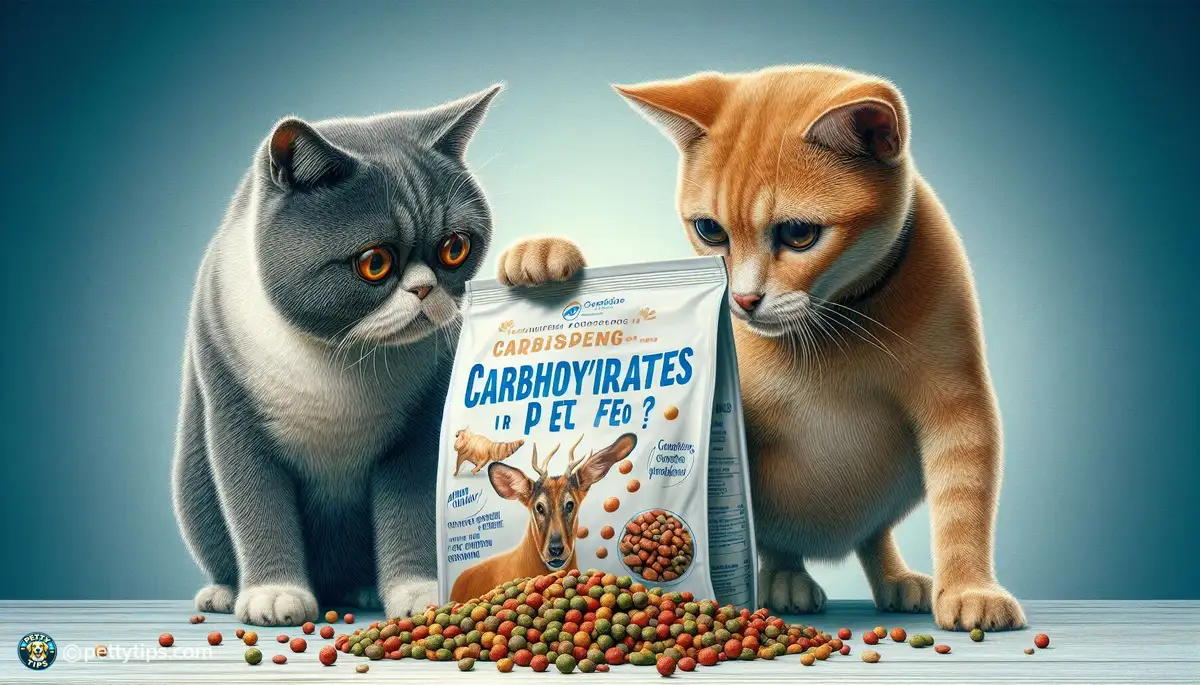- Home
- Pet Nutrition
- Carbohydrates in Pet Food: Friend or Foe?
Carbohydrates in Pet Food: Friend or Foe?

What are Carbohydrates?
Carbohydrates are a macronutrient found in pet food and are a primary source of energy for our furry friends. They consist of sugars, starches, and fibers, which are broken down into glucose during digestion. Glucose serves as fuel for cells, providing energy for various bodily functions. Carbohydrates are commonly derived from ingredients like grains, vegetables, and fruits in pet food formulations.
The Role of Carbohydrates in Pet Nutrition
Carbohydrates play several vital roles in your pet's diet beyond providing energy. They contribute to the texture and palatability of pet food, aiding in its overall digestibility. Additionally, certain types of fibers found in carbohydrates promote gastrointestinal health by regulating bowel movements and supporting the growth of beneficial gut bacteria. However, not all carbohydrates are created equal, and the source and quality of carbohydrates in pet food can vary significantly.
Common Misconceptions about Carbohydrates
There are many misconceptions surrounding carbohydrates in pet food, leading to confusion among pet owners. Some believe that carbohydrates are unnecessary fillers in pet food, contributing to obesity and other health issues. However, when included in appropriate amounts and from quality sources, carbohydrates can be a valuable component of a balanced diet for pets. It's essential to understand that the quality and balance of all nutrients, including carbohydrates, are crucial for meeting your pet's nutritional needs.
Assessing Carbohydrates in Pet Food
Reading Pet Food Labels
When evaluating pet food options, it's essential to read and understand the ingredients list and guaranteed analysis on the label. Look for specific carbohydrate sources listed, such as rice, oats, or sweet potatoes. Ideally, carbohydrates should appear lower on the ingredients list, indicating a higher proportion of protein sources, which are essential for carnivorous pets like cats and dogs.
Understanding Glycemic Index
The glycemic index (GI) measures how quickly carbohydrates in food raise blood sugar levels. High-GI carbohydrates cause rapid spikes in blood sugar, followed by a crash, which can lead to hunger and energy fluctuations. Low-GI carbohydrates, on the other hand, provide a slower, more sustained release of energy. When selecting pet food, opt for carbohydrates with a lower GI to help maintain stable energy levels and prevent blood sugar imbalances in your furry companion.
Consideration for Special Dietary Needs
Some pets may have special dietary needs or health conditions that require specific carbohydrate considerations. For example, pets with diabetes may benefit from a diet with lower-carbohydrate content to help regulate blood sugar levels. Conversely, highly active or working dogs may require a diet higher in carbohydrates to support their energy needs. Consulting with a veterinarian can help determine the best approach to carbohydrates in your pet's diet based on their individual health and lifestyle factors.
Balancing Carbohydrates in Your Pet's Diet
Optimal Carbohydrate Levels
The ideal carbohydrate levels in your pet's diet depend on various factors, including their species, breed, age, activity level, and health status. While cats are obligate carnivores with a lower carbohydrate requirement, dogs have a more flexible dietary profile and can tolerate a higher carbohydrate intake. However, it's essential to strike a balance and avoid excessive carbohydrates, which can lead to weight gain and other health issues over time.
Incorporating Whole Food Sources
When selecting pet food, prioritize options that include whole food carbohydrate sources rather than processed or refined ingredients. Whole grains like brown rice, oats, and quinoa provide more nutritional value and fiber compared to highly processed grains like corn or wheat. Similarly, incorporating fresh fruits and vegetables into your pet's diet can provide essential vitamins, minerals, and antioxidants while adding variety and flavor to their meals.
Monitoring Your Pet's Health
Regular monitoring of your pet's health, including body condition, energy levels, and digestive function, can help determine if their current diet is suitable. Keep an eye out for any signs of food intolerances or allergies, which may manifest as skin issues, gastrointestinal upset, or changes in behavior. If you notice any concerning symptoms, consult with your veterinarian to adjust your pet's diet accordingly and address any underlying health issues.
Conclusion
Finding the Right Balance
In conclusion, carbohydrates can be both a friend and a foe in your pet's diet, depending on various factors such as source, quality, and quantity. When included in appropriate amounts and from whole food sources, carbohydrates play a valuable role in providing energy, promoting digestive health, and enhancing the overall nutritional balance of pet food. However, it's essential to be mindful of your pet's individual needs and to prioritize high-quality ingredients to ensure their optimal health and well-being. By understanding the role of carbohydrates and making informed choices, you can help support your furry friend's health and happiness for years to come.
